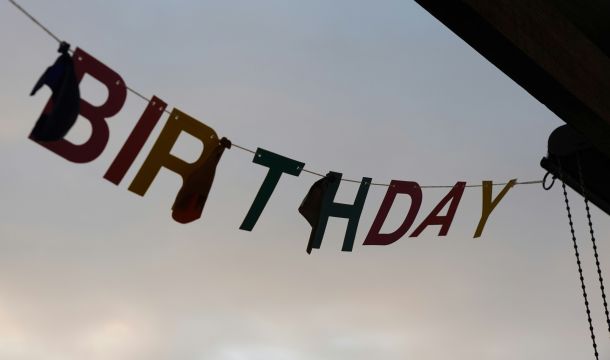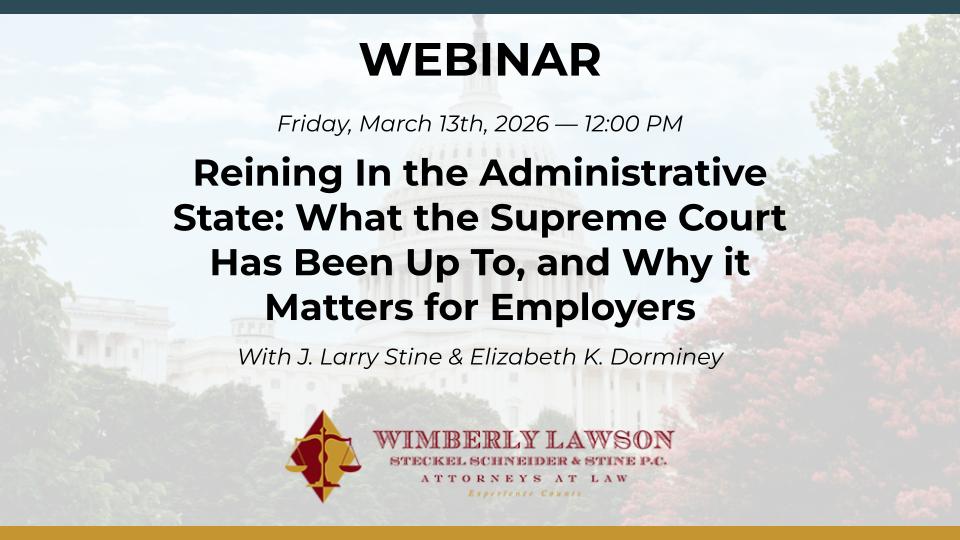Supreme Court Changes Standard for Religious Accommodations to Persons Refusing Sunday Work
In Groff v. DeJoy (No. 22-174, June 29, 2023), the Supreme Court addressed a Christian who rejected Sunday work with the Postal Service due to his faith. He received progressive discipline for failing to work on Sundays, and eventually resigned. He sued under Title VII, contending that the Postal Service could accommodate his Sunday Sabbath practices "without undue hardship."
The Supreme Court reviewed the case to address whether the Court should discontinue the "more than - de minimis cost" test for refusing Title VII religious accommodations stated in TransWorld Airlines, Inc. v. Hardison. Another question before the Court was whether the employer may demonstrate "undue hardship on the conduct of the employer's business" under Title VII by showing that the requested accommodation burdens the employee's co-workers.
In the earlier Hardison ruling in 1977, the Court stated that requiring an employer "to bear more than a de minimis cost in order give [an employee] some Saturdays off is an undue hardship." In the unanimous current opinion authored by Justice Alito, the Court changed the test. According to the Court, it now "understands Hardison to mean that 'undue hardship' is shown when "a burden is substantial in the overall context of an employer's business." It is enough to say that an employer must show that the burden of granting an accommodation would result in substantial increased costs in relation to the conduct of its particular business, taking into account all relevant factors, including the particular accommodations at issue and their practical impact in light of the nature, size, and operating costs of an employer. While this is a change from the way the statute had previously been interpreted, the Court declined to incorporate the undue hardship test under the Americans with Disabilities Act (ADA), which requires significant difficulty and expense.
Unfortunately, the Court declined to determine what facts would meet this new test. The Court did state: "A good deal of the Equal Employment Opportunity Commission's (EEOC) guidance in this area is sensible and will, in all likelihood, be unaffected by the Court's clarifying decision." According to the Court, "The courts must apply the test to take into account all relevant factors in the case at hand, including the particular accommodations at issue and their practical impact in light of the nature, size, and operating costs of an employer." On the second question, whether undue hardship results if the requested accommodation burdens the employee's co-workers, the Court answered in the negative, but left the possibility that a substantial burden on employees would result in a substantial burden on the business. However, the Court again left unclear how an employer would meet this burden, in situations, for example, where employees aren't willing to volunteer to cover the Sundays for an employee that can't work. The Court does state that an employer must do more than conclude that forcing other employees to work overtime would constitute an undue hardship.
Editor's Note: Although what type fact patterns create an "undue hardship" under religious accommodation principles remain unclear, we do know that the burden on the employer to show undue hardship is less than an "action requiring significant difficulty or expense," as the Supreme Court rejected that tougher standard. At the same time, the Court finds that a "more than de minimis" cost as a standard for undue hardship is not enough. Further, the Court's rationale suggests that hardship to employees who have to assume the extra work for such an accommodation may not be sufficient to show an undue hardship to the employer.
Note that these issues come up not only in requesting days off, but also in grooming, dress, and other situations. Related issues may arise in reference to LGBTQ people and those seeking access to contraception. One case has been delayed pending a Supreme Court ruling that concerns Christian teachers' requests to be exempt from a policy on transgender students' names and pronouns.
But in any event, it will be a little harder for employers to deny religious exemptions in workplace policies based on the concept of undue hardship. Further, if the employer claims that the extra burdens on co-workers as an undue hardship, apparently such an accommodation must also harm the conduct of the business itself, such as through a loss of productivity or efficiency.
Employers may also need to change many of their policies to be consistent with the new reasonable accommodation standard. While policies should reference undue hardship, it may be harder to define what that concept means, particularly since it may vary as to whether it is an issue under religious accommodations, or under the ADA.
This article is part of our August 2023 Newsletter.
View newsletter online
Download the newsletter as a PDF
Related Content
Get Email Updates

Reining In the Administrative State: What the Supreme Court Has Been Up To, and Why it Matters for Employers

TPS Update (as of 2/6/2026)

Job Interviews Can Be a Good Selection Device

Suggestions on How to Diffuse a Tense Situation

Employers Blame Unions for Recent Shutdowns




